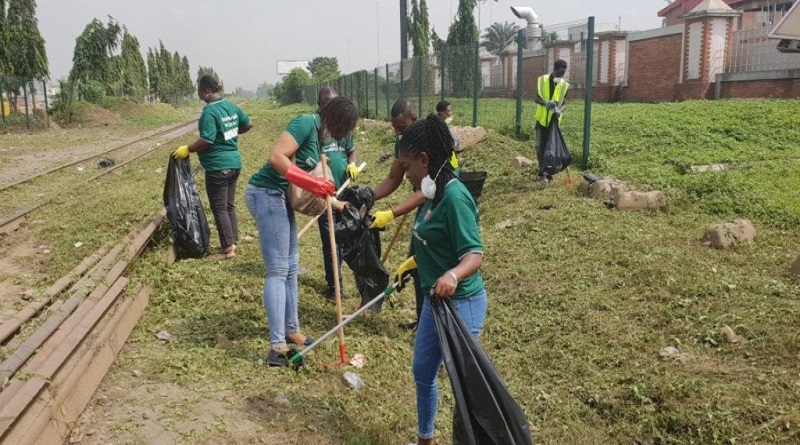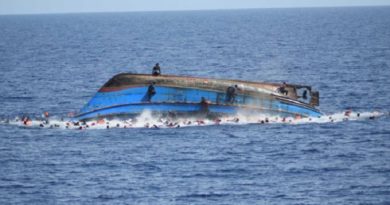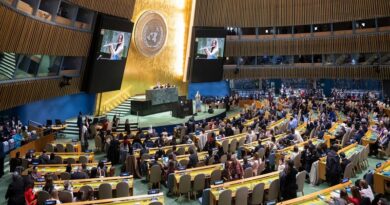World Clean Up Day: Nestlé Nigeria restates commitment to zero environmental impact by 2030
Members of the Food and Beverage Recycling Alliance (FBRA), including members of staff of Nestle Nigeria Plc cleaning up the Nigerian Army Shopping Arena Complex, Oshodi, Lagos to mark the World Cleanup Day on Friday, Sept. 15, 2018.
As the world commemorate the annual World Clean Up Day on Saturday, Nestlé Nigeria has restated its commitment to zero environmental impact by 2030, especially with post-consumer packaging waste.
The company reaffirmed its commitment when it joined its other partners in the Food and Beverage Recycling Alliance (FBRA) to create awareness on the need for proper disposal of used post-consumer packaging waste with special focus on polyethylene terephthalate (PET) bottles to avoid environmental pollution.
Nestle’s Corporate Communications and Public Affairs Manager, Mrs Victoria Uwadoka, said that volunteers from the alliance came together to clean up and sanitise the environs of the Nigerian Army Shopping Arena, Oshodi on Friday.
“It was an opportunity for the company to reiterate its commitment to zero environmental impact by 2030 and its ambition of making 100 per cent of its packaging recyclable or reusable by 2025 as announced earlier in the year.
“The company is also committed to stewarding resources for future generations as well as shaping sustainable consumption,’’ she said as the company’s staff carried on with exercise.
“In line with this global commitment, Nestlé Nigeria has made progress toward reducing the environmental impact of its packaging, while safeguarding the quality of its products.
“Some of the changes so far include shipping the Maggi bouillon tablets in 3-ply cases instead of 5-ply.
“This has reduced packaging by 22 tonnes. 14 tonnes of packaging has also been saved by reducing shrink film packaging thickness from 60 microns to 50 microns.’’
On its part, Nestlé Waters switched to using lightweight packaging, renovating its 60cl and 150cl bottles, she disclosed.
“This resulted in a saving of 172 tonnes of PET bottles and 43 tonnes of PET caps over a period of 12 months.
“Nestlé has also built a wastewater treatment facility at Agbara factory in a bid to ensure the reduction of the volume of wastewater from its manufacturing operations. Wastewater is treated at this plant before its final discharge into the environment.
“In addition to its commitment to reducing waste by using lightweight packaging, Nestlé continues to join efforts with other leading companies in the Food and Beverage Recycling Alliance (FBRA) like Seven Up, Nigerian Breweries and Nigerian Bottling Company to ensure responsible waste management and reduction.
“FBRA works with government and other stakeholders to drive industry collaboration on post consumption waste management and recycling,’’ she said.
The News Agency of Nigeria (NAN) reports that the Alliance was founded in 2013 as a self-regulatory initiative to aid the collection and recycling of post-consumer packaging, and to ensure the success of the Extended Producer Responsibility (EPR) policy of the Federal Government of Nigeria.
Since then, FBRA has developed a practical collection and recycling plan with a focus on packaging materials that pose significant challenges for Nigeria’s national waste management system.
The Alliance has earned the recognition of the National Environmental Standards and Regulation Enforcement Agency (NESREA), for its significant progress towards EPR compliance.
By Peter Ejiofor




